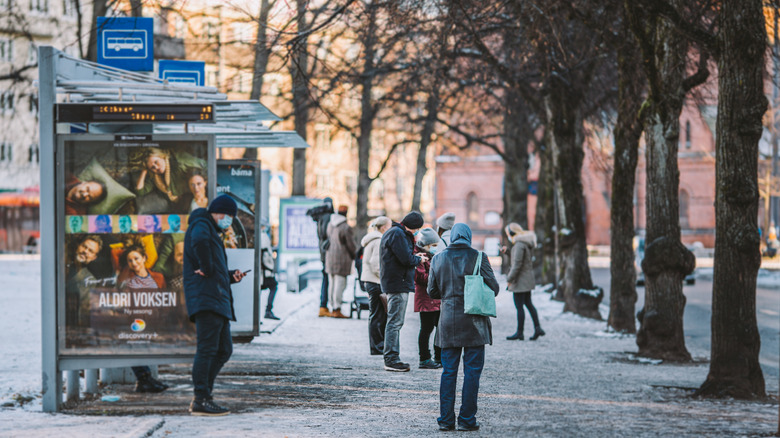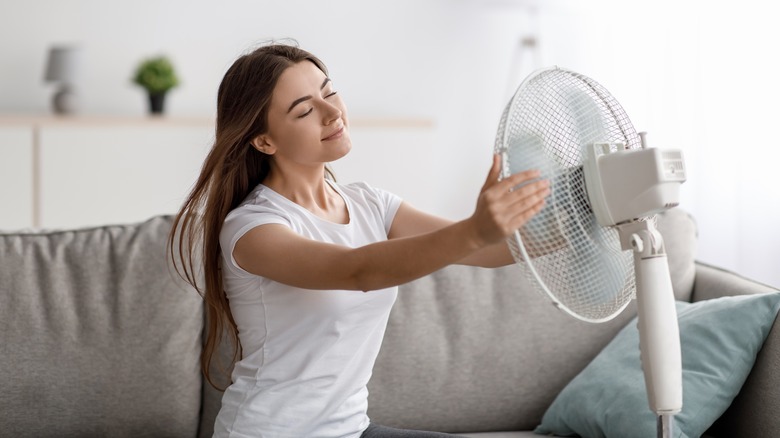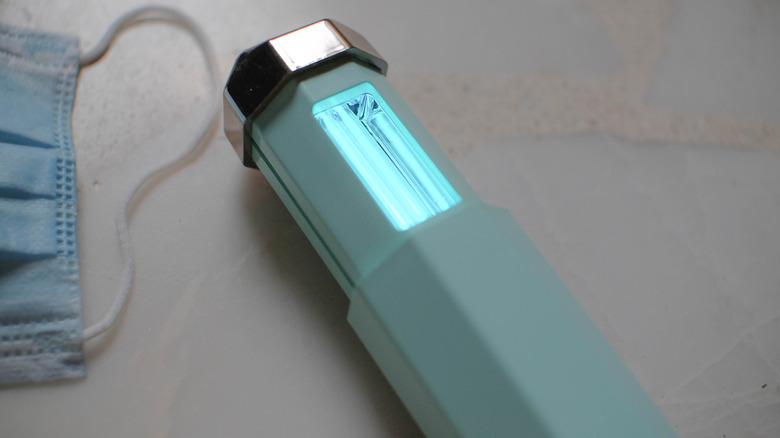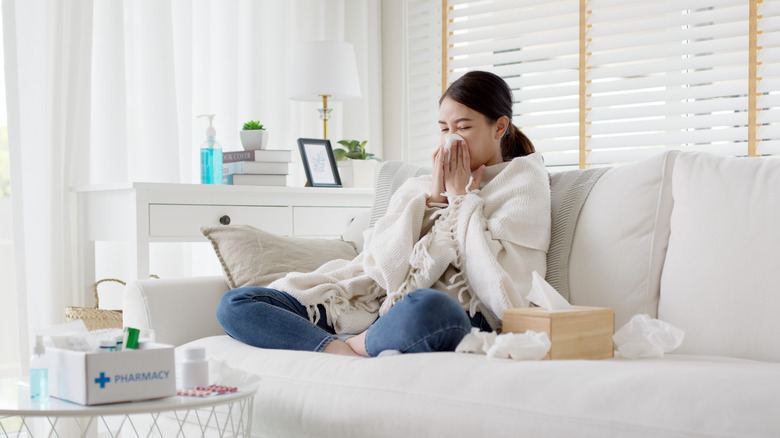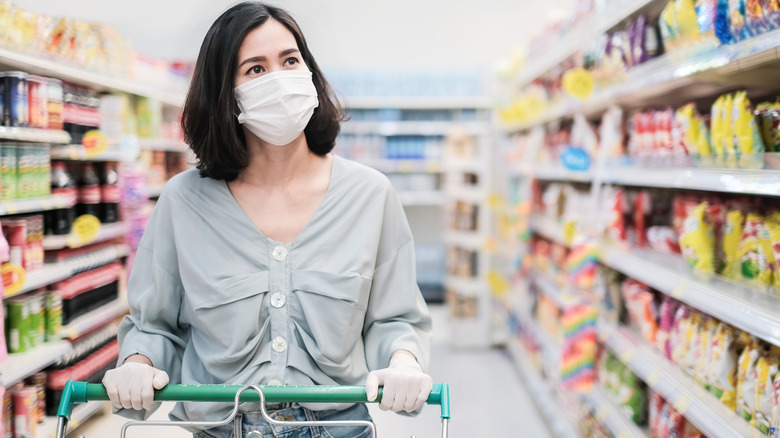Dr. Michael Blaivas Reveals How The Weather Really Impacts The Spread Of COVID-19 - Exclusive
Believe it or not, the weather may have an impact on the spread of COVID-19. At the beginning of the pandemic, many of the educated guesses about how the virus spreads were based on data from other more commonly known viruses, like the flu (via The Daily Beast). As a result, experts assumed that COVID-19 was more likely to spread during the winter months than in the summer months since peak flu season takes place during colder weather in the U.S.
However, new research published in the journal PLoS One suggests otherwise. According to the study, COVID-19 cases in 2020 skyrocketed as temperatures increased during the summer. But the reasoning for this is not what you might think. In an exclusive interview with Health Digest, Dr. Michael Blaivas, the chief medical officer at Anavasi Diagnostics, explains when COVID-19 is more likely to spread, and which factors can help influence seasonal surges in caseloads.
COVID-19 can spread equally well in warm and cold weather
As it turns out, the spread of COVID-19 may have more to do with proximity to others than the actual weather itself. That's because warm weather does not kill the virus any faster than colder temperatures. However, the weather can certainly influence how close people are in proximity to each other. Whether this is impacted more by hot or cold weather depends on the region and overall climate, according to Blaivas.
The virus has a higher chance of spreading to more people if an infected person is in a crowded area, rather than a place that is mostly empty. "In reality, the key is what weather drives people inside vs. outside," Blaivas says. "In south Florida, more people may be outside in wintertime when temperatures are cooler, rather than hot and humid in the summer. In Minnesota, it is the opposite." This means that, for the most part, COVID-19 can spread equally well in both warm and cold weather.
UV light can kill COVID-19
That being said, it is true that ultraviolet (UV) light can kill the virus that causes COVID-19. However, UVA and UVC rays destroy the virus at slightly different rates, with UVC rays being the most effective at swiftly killing COVID-19. But even then, it's not instantaneous, Blaivas explains. As a matter of fact, it can take up to nine minutes for UVC rays to completely kill viral particles in the air.
As a result, Blaivas doesn't recommend relying on the sun or the weather to destroy the virus for you. "Don't count on some sun coming in the window to kill virus on all surfaces in a room," he says. Instead, it's best to use devices that directly emit UV light if you're looking for an effective way to kill viral particles. "To sterilize surfaces in your house, hotel, or elsewhere will require a UV wand and some patience, but the virus is killed very well by UV," he added.
There's no evidence that the weather can worsen COVID-19
When it comes to the weather's impact on the severity of the disease, however, Blaivas says that there is no documented evidence that either warm or cold temperatures can somehow worsen the symptoms of COVID-19. "Some people have argued that when people are stressed by very cold weather or constantly moving from very hot outdoor environments to very cold air-conditioned indoor settings, their immune system may be negatively impacted," Blaivas explains.
However, it is still unknown how much of an impact this could have on a widespread scale or on a much larger population. According to Blaivas, having a weak immune response to COVID-19 could lead to greater viral spread and result in more severe and worsening symptoms of the virus. "This is contrasted to what we saw with the original and Delta strains, where much of the damage done to human lungs, for instance, was a result of the immune response," he shares.
Other considerations to keep in mind as the seasons change
As the seasons begin to change, however, there are some other considerations to keep in mind about the spread of COVID-19. According to Blaivas, one important thing to remember is that the virus tends to spread easier indoors. That's because people are more likely to be in closer proximity to each other in enclosed spaces. Furthermore, keep in mind that flu season is fast approaching.
"We have seen patients who had both the flu and COVID, and a double infection can make it extra hard on an individual," Blaivas says. That's why he recommends wearing a face mask in crowded or busy public settings. "As those of us in cold climates are driven indoors, consider wearing a mask when people are coughing in busy public areas or at work, even if there are few COVID infections being reported in your area," he notes. Doing so can help prevent you from contracting COVID-19, the flu, or even just the common cold.
To learn more about Dr. Michael Blaivas, visit Anavasi Diagnostics.

